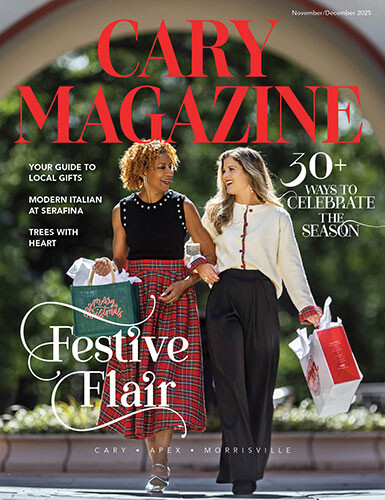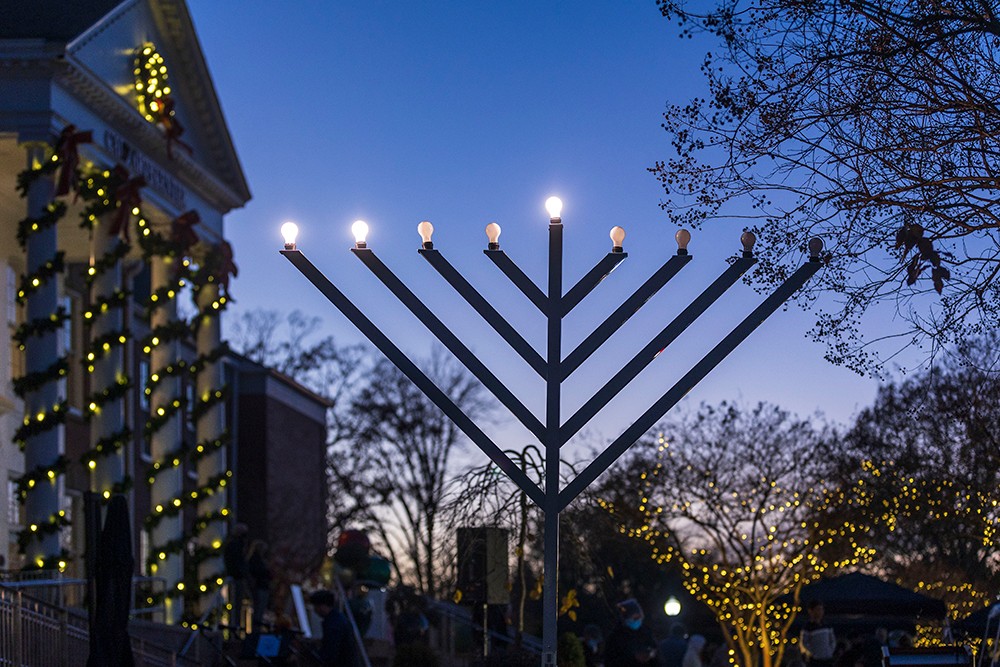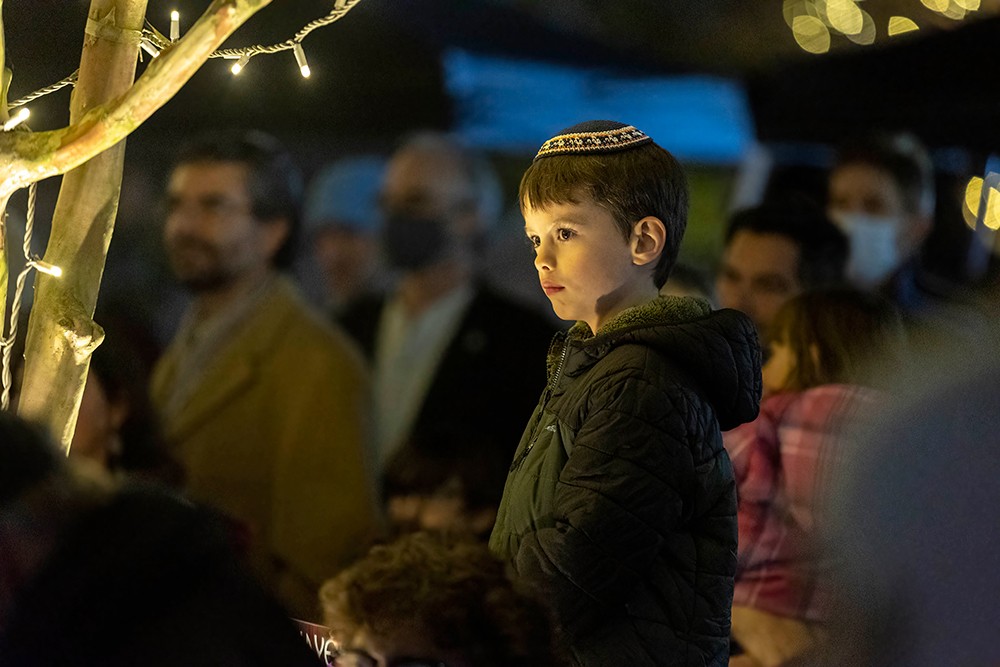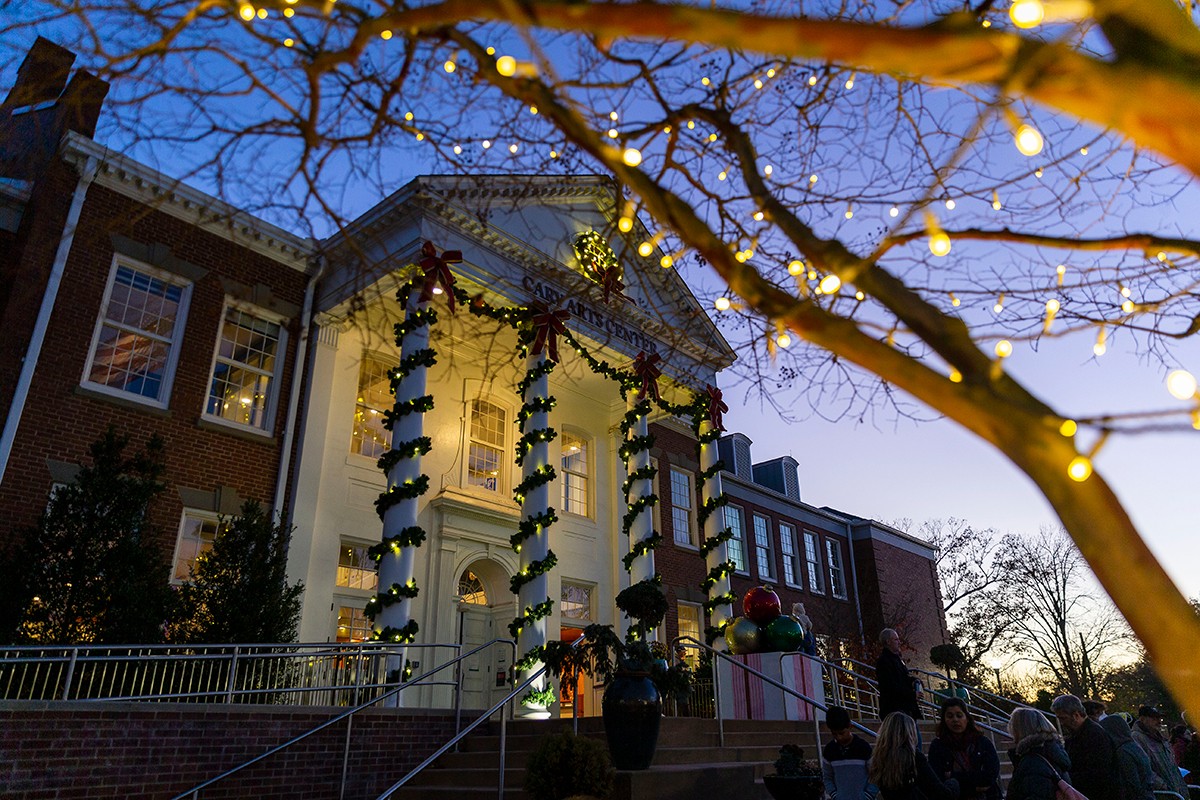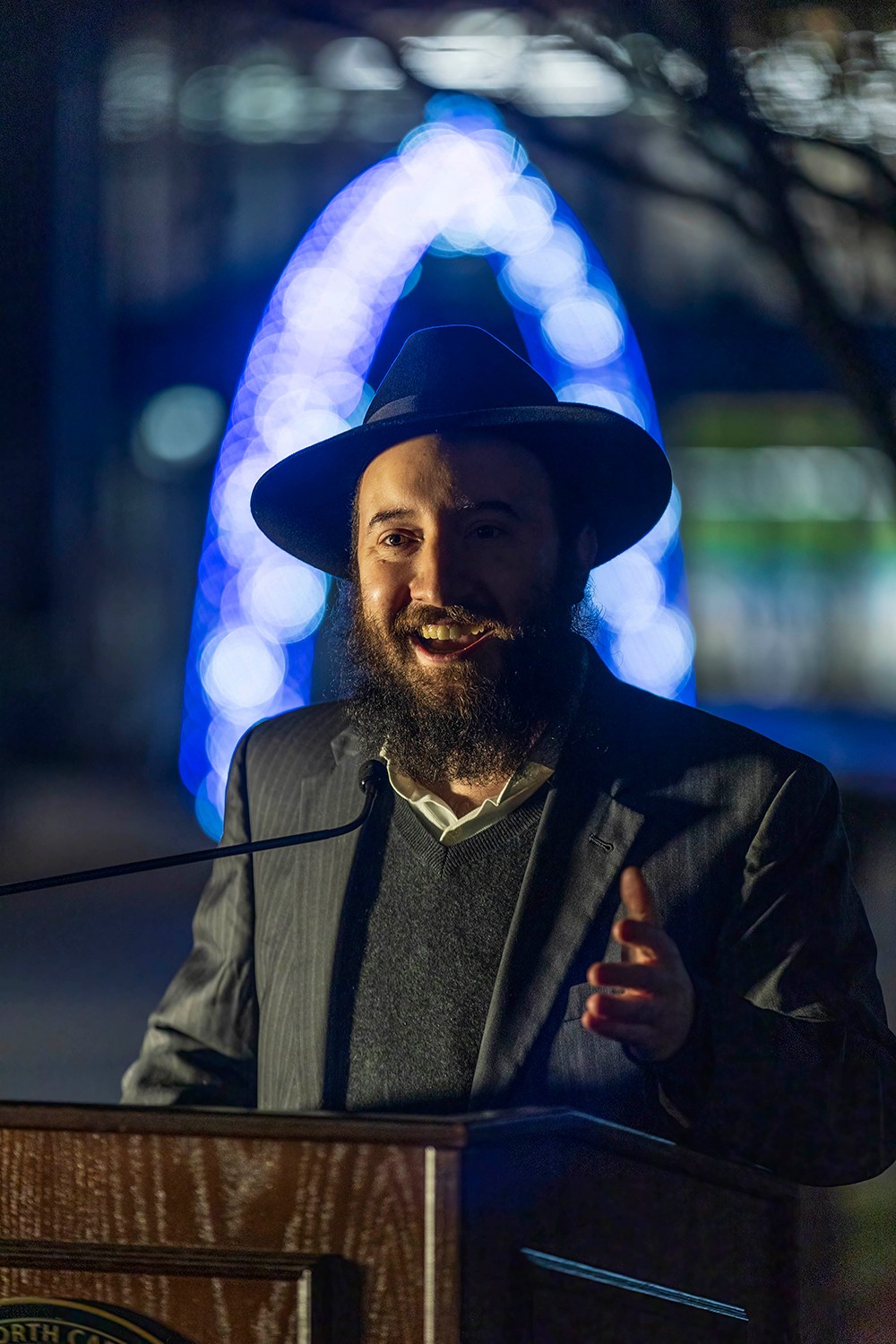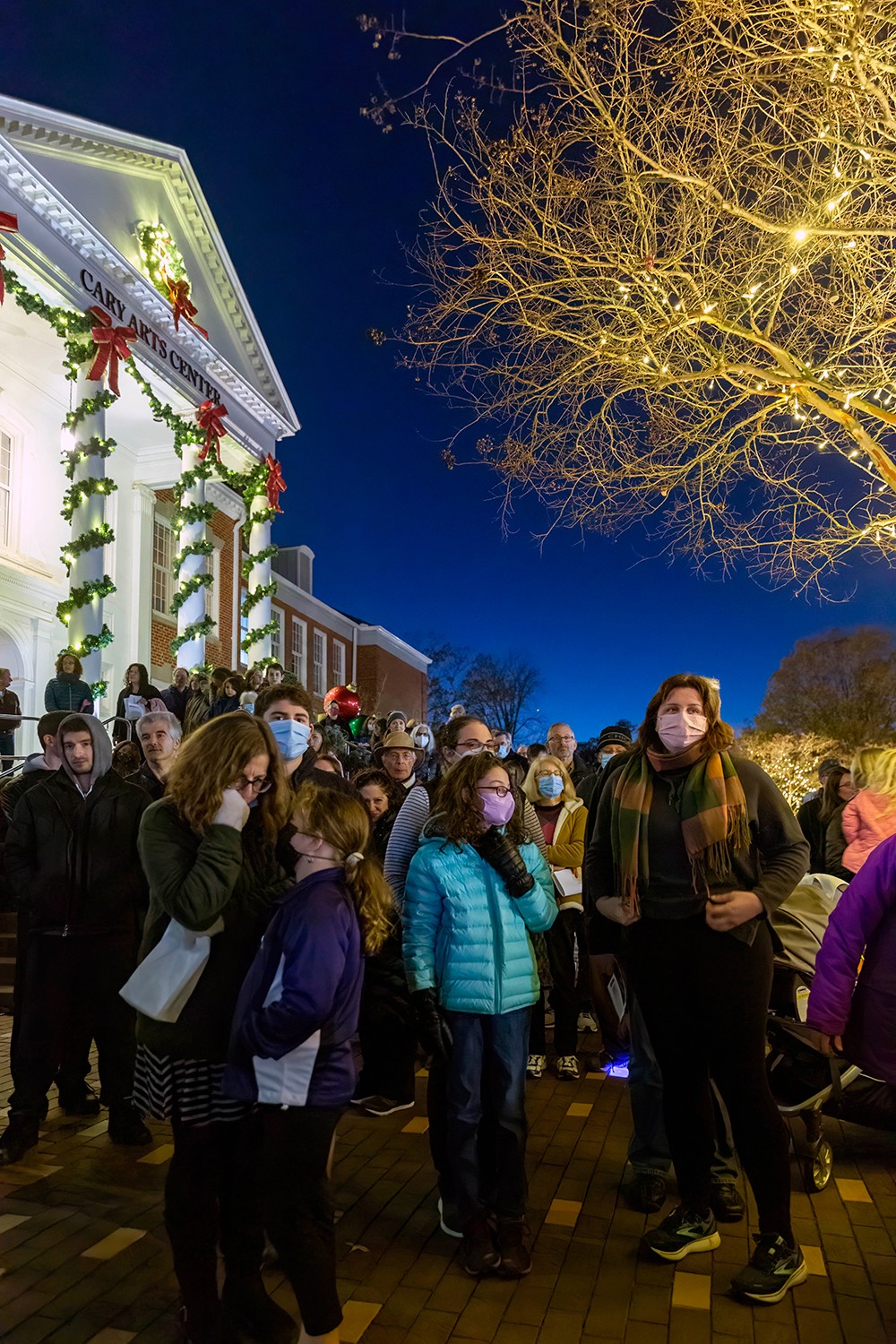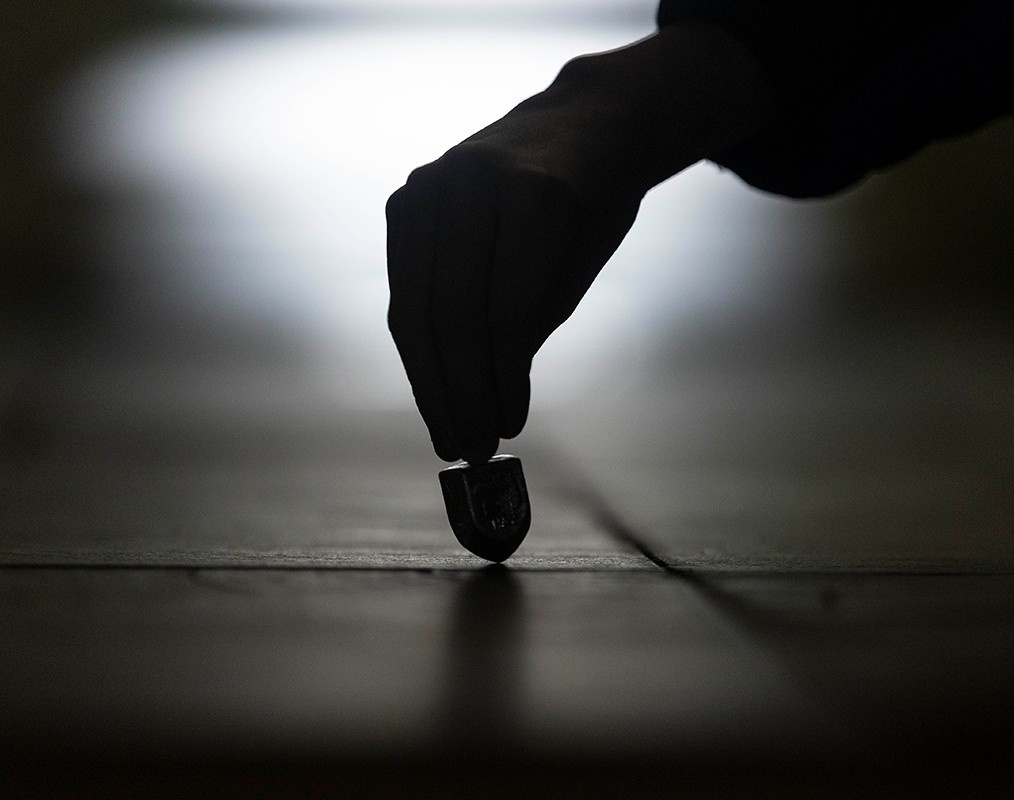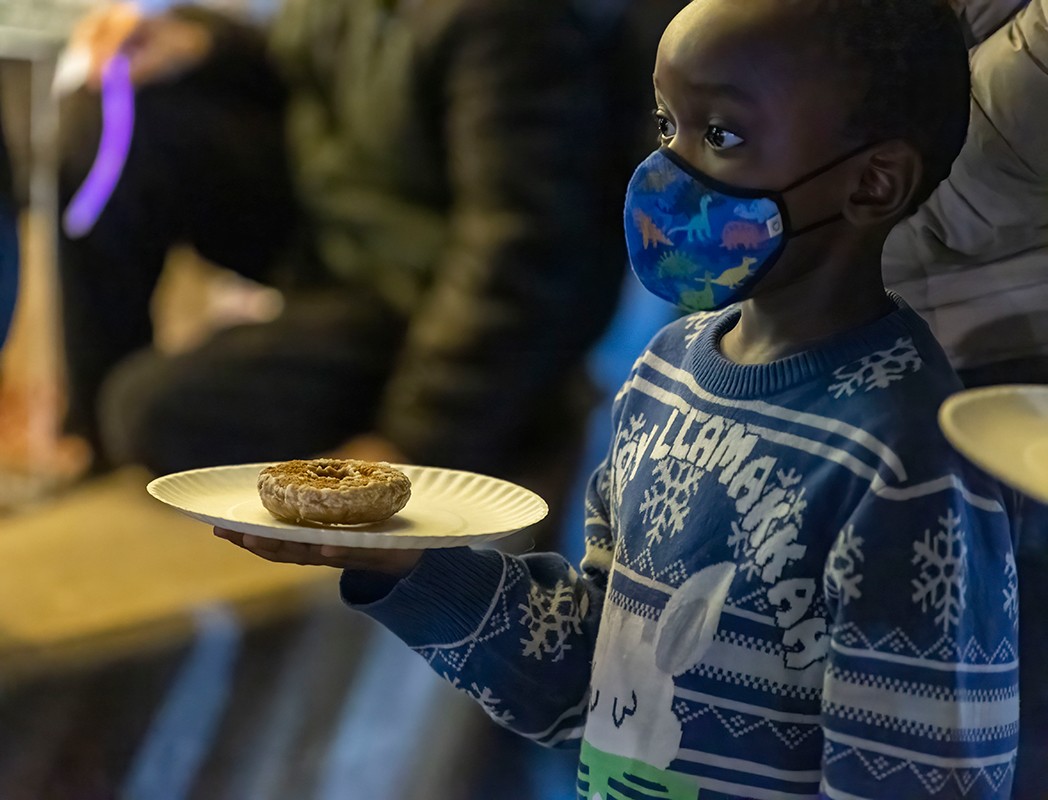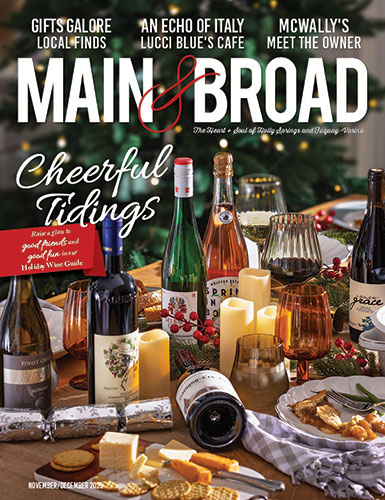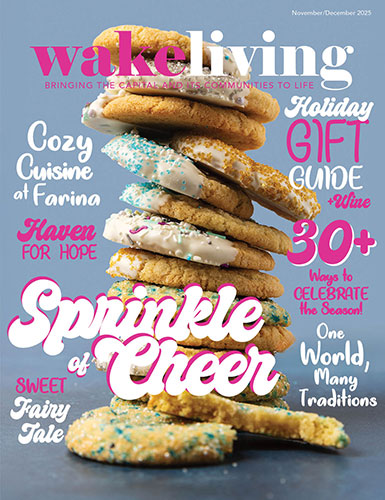In honor of Hanukkah, which falls December 18 to 26 this year, we reached out to Mike Stevens, a retired rabbi who served congregations in Ohio and Quebec before starting his 30 years with Temple Beth-El in Munster, Indiana, prior to moving to Holly Springs. Stevens now teaches adult Hebrew classes at Beth Shalom in Raleigh and enjoys playing piano at Shabbat (Sabbath) and holiday services. His wife, Judy, a retired teacher, was born in Hungary as a child of Holocaust survivors. Both Judy and Mike serve on the Holocaust Speakers Bureau, doing presentations about the Holocaust for schools, colleges, and churches. Together, they have four children and 10 grandchildren — and are excited to share the rich history of Hanukkah with other families throughout our community.
When is Hanukkah?
Hanukkah, one of the most popular and festive of all Jewish holidays, begins each year on the 25th day of Kislev, the third month of the year in the Jewish calendar. As we follow a lunar calendar, Hanukkah can begin any time between late November and late December.
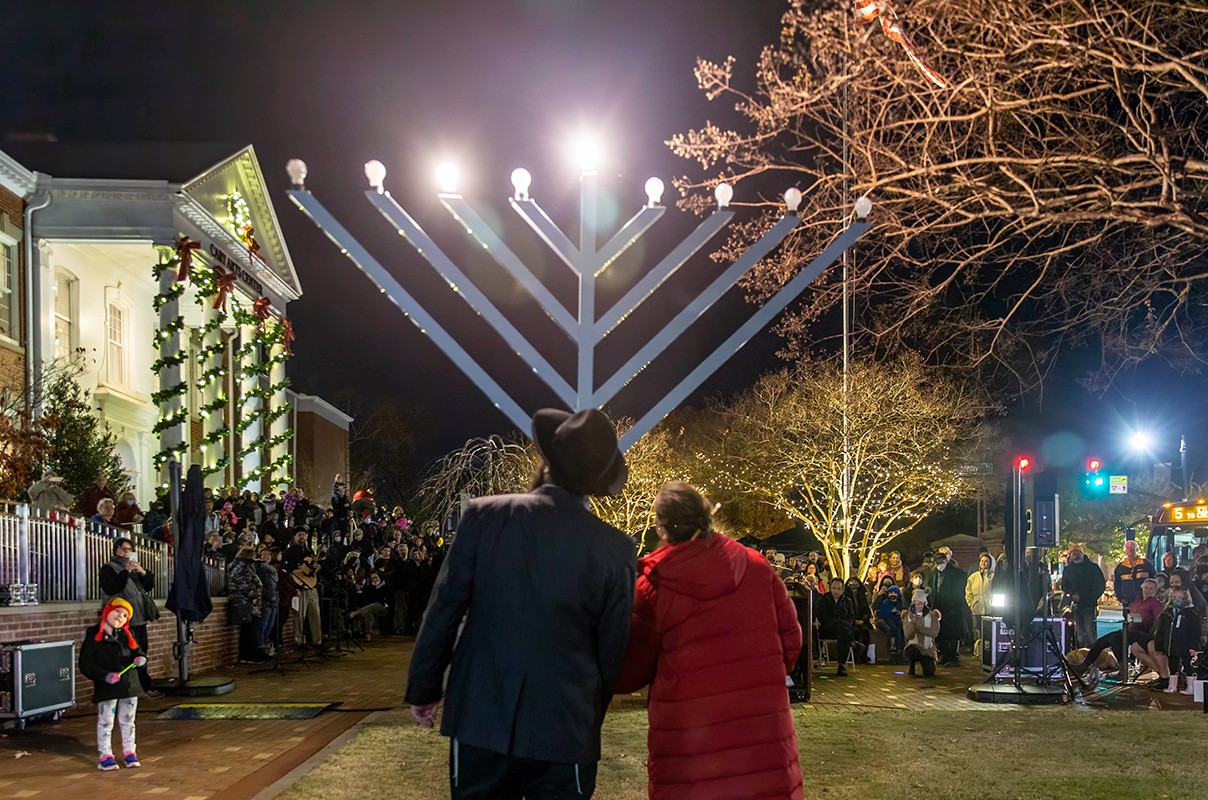
The History of Hanukkah
The word Hanukkah means “dedication” or “rededication,” and is related to the Hebrew word for “education.” It is based on historical events that took place in the land of Israel in 168–165 BCE. Briefly, the Greek-Syrian king, Antiochus IV, after a series of wars between the Ptolemys in Egypt and the Seleucids in Syria, took control over Israel in 168 BCE, prohibiting the Jews from worshiping at their Temple in Jerusalem and desecrating the Temple, among other ways, by bringing in biblically prohibited foods. After three years of fighting against the Greek-Syrians, a small group of Jews, the Maccabees, part of a larger group called the Hasmoneans, regained control of the ancient Temple. According to legend, the oil found for the rededication of the Temple was expected to burn for only one day, but, miraculously, burned for eight.
Hanukkah, called in Hebrew “chag ha’urim,” or “the holiday of the lights,” is celebrated each year for eight days thanks to what is called “the miracle of the oil.” The tradition may also reflect an earlier delayed celebration of Sukkot, our eight-day fall harvest festival — which begins on the first full moon of fall, two weeks after Rosh Hashanah, the Jewish New Year.
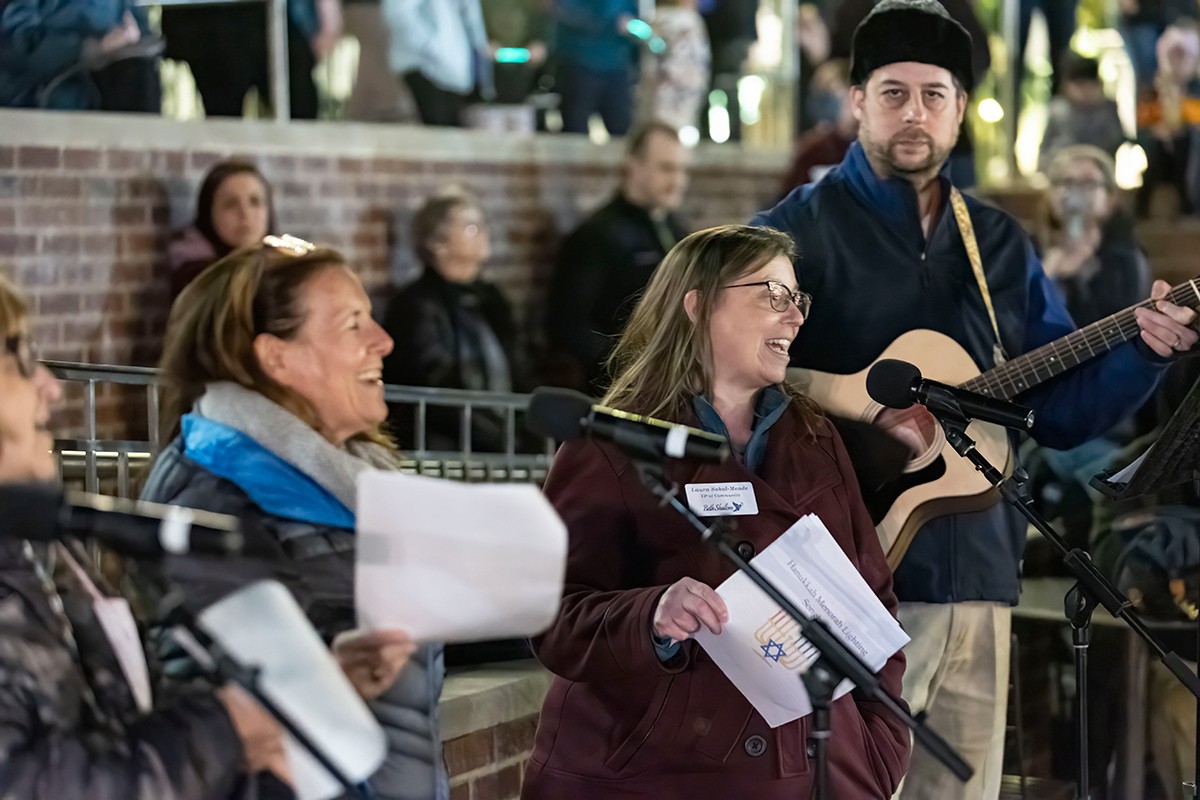
The family-friendly event includes a sing-along and make-and-take activities for kids.
How is Hanukkah celebrated?
We celebrate Hanukkah in several ways: We light candles (one on the first night, two on the second night, etc.) in a special candelabra called a Menorah or Hanukkiyah, to commemorate the eight days of the miracle of the oil; we exchange Hanukkah presents; we play games with a dreidel, a four-sided spinning top, whose Hebrew letters stand for the phrase “a great miracle happened there;” we eat latkes (potato pancakes) or sufganiyot (jelly doughnuts) fried in oil, to remind us of the miracle of the oil; and we sing delightful Hanukkah songs.
Each year, as we celebrate Hanukkah, we’re actually commemorating a confluence of three miracles: the miracle of the oil, lasting for the eight days of the rededication ceremony; the miracle that a small numbers of Jews led the way to the Jewish people regaining their right to worship at their ancient Temple; and the miracle that at a time when assimilating into the Greek-Syrian culture was the goal of many Jews living in Israel, the desire to survive and thrive as a distinct Jewish community enabled them to prevail.
Why is it important to spread awareness about Hanukkah in our community?
The ancient rabbis taught that since all people are children of one God, what we have in common with all other people far outweighs any differences among us. Hanukkah is not only about celebrating an important time in our history — more importantly, it’s a reminder that Jews, and all people, make the world a better place by practicing compassion, inclusion, acceptance, and caring for all people.
- Hosting the Holidays
- The 2022 Gift Guide
- Celebrating Kwanzaa
- In Honor of Hanukkah
- Small Bites, Big Taste
- A Lesson in Thankfulness
- Things to Do: November / December 2022
- Erica Chats: Who Loves a Good Holiday Tradition?
- Small Business Spotlight: Stylish Living
- Nonprofit Spotlight: Family Promise of Wake County
- On Trend: Beer Advent Calendars
- Liquid Assets: Holiday Bash by Raleigh Brewing
- Liquid Assets: Santa’s Smashed
- Garden Adventurer: Color Your Indoor World with Calathea
